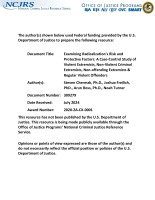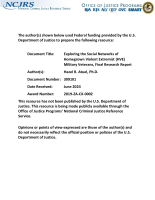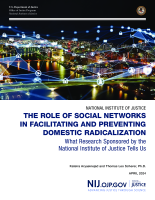Physiological Reactivity in Children of Oklahoma City Bombing Survivors 7 Years Postdisaster: A Pilot Study
Journal
Annals of Clinical Psychiatry
Date Published
August 2011
Agencies
NIJ-Sponsored
Publication Type
Research (Applied/Empirical)






